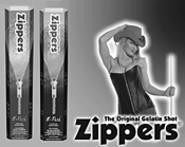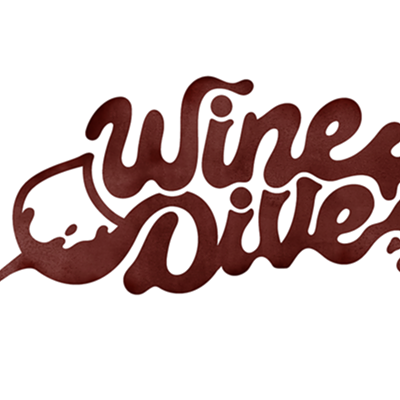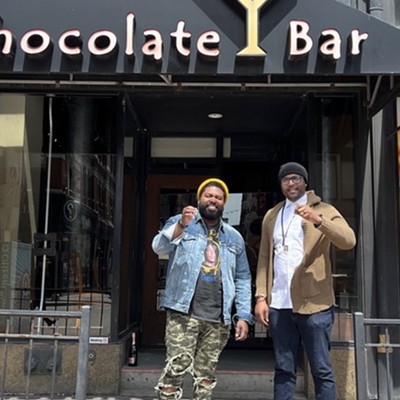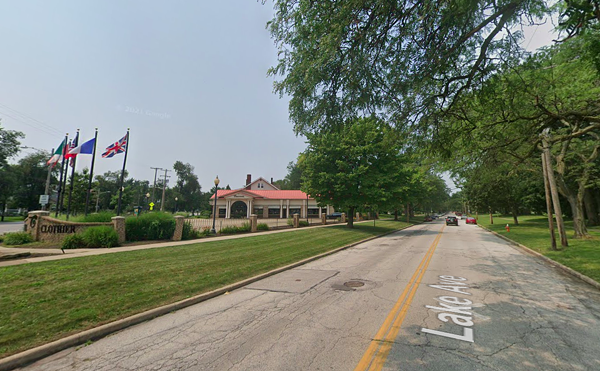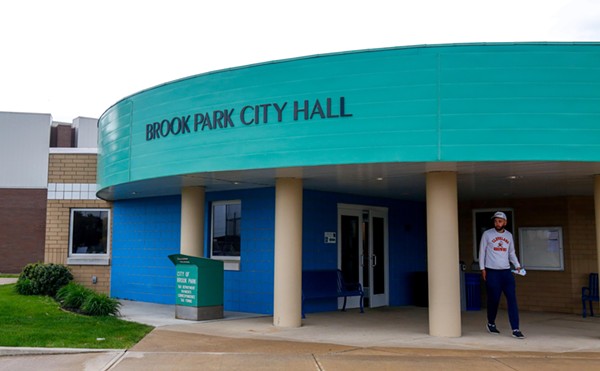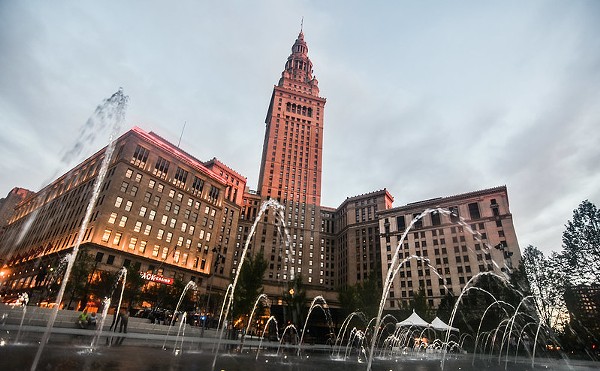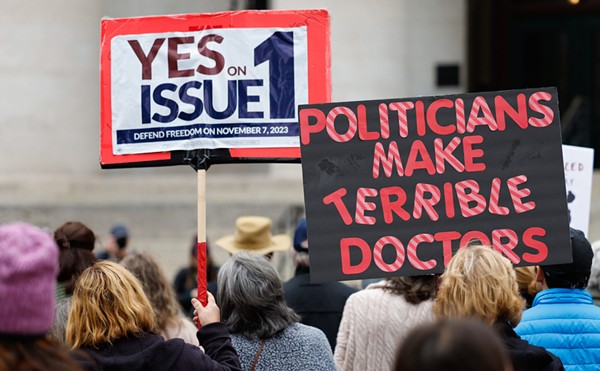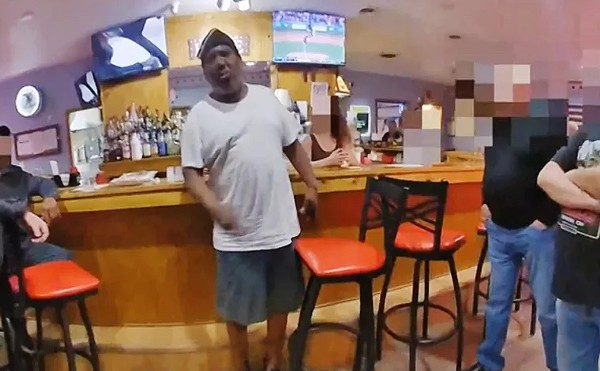Furious is the wailing over Ohio's inability to create new businesses -- especially the kinds that involve lab coats. The reasons proffered read like a social studies test.
Ohio sucks at business because:
A) We fund our universities at the same level as an Appalachian dental plan.
B) Our rich guys are too dumb to understand emerging industries, which means you need a blowtorch and rocket-propelled grenades to pry investment capital loose.
C) Creative people would rather live in Seattle or the Silicon Valley, where they won't get beat up for talking about poetry.
D) We're basically just stupid.
E) All of the above.
But there may be a more compelling reason, and it comes in the form of a 27-year-old entrepreneur from Toledo. Meet Brian Pearson -- ex-Marine, patriot, and, judging by his excitable voice, the kind of guy who would make a good MC at wet T-shirt contests. Five years ago, Pearson and his buddy, Nick Costanzo, came up with a novel idea: They would be the first to market that noted frat party staple, the Jell-O shot.
Okay, so the idea wasn't that novel. But it's one of those things you ridicule until the day you're standing amid the syringes and discarded underwear on Edgewater Beach, and Pearson floats past in a 70-foot cabin cruiser. Then it doesn't seem so stupid anymore.
Zippers, as the gelatin shots came to be known, would be 24-proof and sold in eight-packs. The company was launched in a garage, but grew to an office in downtown Toledo with 18 employees. It may not have been biotech, but in the lexicon of business geeks, Pearson had tapped into Ohio's two core competencies: manufacturing and liquor.
Zippers were first produced at a distillery in Lodi, but it couldn't keep pace with sales. So Pearson decided to bring production in-house. He bought $170,000 in equipment and set about getting the permits to manufacture in Toledo. The plant would employ 40 people to start -- a modest but welcome plum for a city that vaguely resembles post-war Berlin.
It would take a year and 14 inspections for Pearson to navigate the Ohio Division of Liquor Control, which, as with most state agencies, is akin to wandering through a maze of 3,000 crackheads with civil service protection. "What they do is give you bad information," says Pearson, "and when you act on it, they're standing there smiling, with a ticket already written."
But he began to smell a rat. The Ohio Prevention Education Resource Center, which hands out anti-booze and -drug literature, sent Pearson and seven state officials a letter, fretting that Zippers might be mistaken for conventional Jell-O and thus be pounded by sweet little children. It was a red herring, of course. Zippers don't need refrigeration, which means parents can safely stash them in the same place they keep their guns and pot.
Pearson offered to meet with the center on three occasions. He is an eager, accommodating man, and probably would have bought lab coats and changed the company's name to Bio-Zippers, just to make everyone happy. But OPERC blew him off each time.
Then, in April of last year, Pearson was unexpectedly denounced by Hope Taft for foisting booze on babies with packaging that is "sort of disguised." (Never mind that each cup has seven alcohol warnings.)
It's easy to see why the First Lady wouldn't understand Jell-O shots. She married a guy who plays air tambourine to Pat Boone CDs, and is a product of old, conservative Cincinnati money -- the kind of people who eat rum cake with the curtains drawn.
They're also people who like to pick easy public crusades that make for quick scores with the Sphincter Class, but aim at small targets that can't fight back. You won't find Hope Taft denouncing Anheuser-Busch for making Doc's hard lemonade. But some little guy in Toledo? Oh yeah, that's good hunting.
So the moralists began to maneuver behind the scenes. "While these things apparently meet all BATF requirements and are therefore legal, I personally see no reason why they shouldn't be banned from sale in any market," wrote Ken Wynn, president of the National Alcohol Beverage Control Association, on May 13, 2002. ". . . I don't know if you have the authority to ban the sale of Zippers, but I would certainly back you if you did."
The letter was written to Ohio Liquor Control Superintendent Rae Ann Estep. A month later, 27 officers from various agencies stormed Pearson's office, confiscating everything in sight. "They said I was running a national bootlegging operation," he says.
The raid could have been filmed as an educational video called How Not To Run A Strong-Arm Scam. After all, here was a man who spent the last year in constant contact with Liquor Control, yet was now accused of being a surreptitious bootlegger.
Pearson wasn't formally charged, but the Lucas County prosecutor nonetheless wanted him to plead guilty to three felonies, including racketeering. Unfortunately, his only crime was being dumb enough to start a business in Ohio. He refused.
By fall, the prosecutor had lowered his demands to a misdemeanor plea. Pearson again refused. So he was brought before a grand jury, which promptly declined to indict. Apparently it's not yet against the law to piss off the First Lady. "One juror asked the prosecutor, 'Why is this here? What are you trying to do?'" Pearson says. "They were just trying to put me out of business."
The whole affair had the feel of a bad reality show: What happens when you take a group of religious nuts, old-money matrons, and small-town insurance salesmen and give them control of an entire state? You wouldn't believe it if we told you! Watch Ohio, tonight on Fox!
Yet Pearson isn't amused. During the first half of 2002, his company did $2.5 million in business. In the second half, with everything he owned in government hands, he did just $50,000.
The would-be Jell-O shot king won't lie down, however. He's slowly rebuilding, with sales in 30-some states, as well as the U.K., Holland, and Germany.
But those 40 jobs that were coming to Toledo -- they're now at a distillery in Virginia, safe from the reality that is Ohio.

